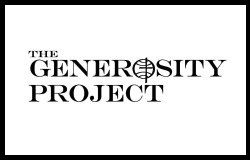The Generosity Project is a collaborative effort between ABCUSA, regions, and local congregations. The Generosity Project aims to help pastors re-frame the conversation around stewardship and generosity in their congregations. Bi-monthly blogs help support new growth and understanding as we deepen our ministry and discipleship. The reflection below was provided by Rev. Stacy Emerson.
Happy 2023!
Dr. Seuss wrote, “How did it get late so soon? It’s night before it’s afternoon. December is here before it’s June. My goodness how time has flewn. How did it get so late so soon?” Time is a funny thing. The older you get, the quicker it passes. The older you get, the more you understand the seasons of time, the qualities of time which have made up your life…years of struggle, moments of pure joy, seconds of sheer terror, and vast stretches of boredom. But how do we recognize what time we are in?
It’s a common question, asked a million times a day: What time is it? How do you know? The clock. It’s one of the earliest inventions we are asked to master, as young children, to be able to “tell the time.” Interesting isn’t it? We teach our children to let us know when they are hungry or to recognize when they are tired and take a nap, and then they go to elementary school where they learn to “tell the time,” to read a clock, but what they actually learn is how to let “time tell them.” How to let time tell them when they need to wake up, get the bus, go to math and art and PE and science, come home, eat dinner, and go to bed. And from then on, we eat at noon and 6 o’clock, regardless of whether we are hungry or not, and we go to bed at a certain time, whether or not we are tired, and we structure the whole of our lives based on an external device which tells us what time it is.
But, scripture would argue with us, does the clock tell us what is most important in life, does it tell us that it is the time of beginning or ending? That now is the time to break or reconcile, the time to build up or break down, to tear or to sew? We need to realize that the clock does not answer these things. The ways and wonders of time are much more complicated, much deeper, much more sacred that we presume, those of us who live bound by the clock. It is part of our job to steward our time wisely. And it takes discernment, cultivated intentionally and in quiet, deep spaces to learn how to really tell time.
In the book of Ecclesiastes, the author understands the stewardship of time. There is a time for everything, it says, a time for every matter under heaven. There is such a profound trust being described, isn’t there? In these familiar lines we sense that there are profound gifts in every moment, these treasures of God we call seconds and minutes, days, weeks, seasons, and years, even the times the Greeks called epiphanies and crises and promised time filled with hope.
As “stewards of time,” and as much as a child learns to “tell the time” and read a clock, we too need to learn to “tell the time” in these ways and discern the purpose of each moment, whether it is the time to weep or the time to laugh, the time to embrace or the time to refrain from embracing, the time to keep silence or the time to speak, the time to come together and the time to move on, and all the things that follow from such wise, comforting, and even dangerous, moments. As a whole new year stretches before you, think about the stewardship of time, whatever time you are in, whatever time we are in together, and trust that the Spirit is here with us, breathing out God’s blessing and giving us life.
Rev. Stacy Emerson is the senior pastor of the First Baptist Church in West Hartford, CT and the former Stewardship Consultant for ABCUSA, where she previously coordinated The Generosity Project which is about helping congregations deepen their understanding of stewardship as a call to generosity as disciples of Jesus; re-framing the stewardship conversation; and cultivating generosity in pastors, lay people, and congregations. For more information about The Generosity Project, visit www.abc-usa.org/generosityproject.

